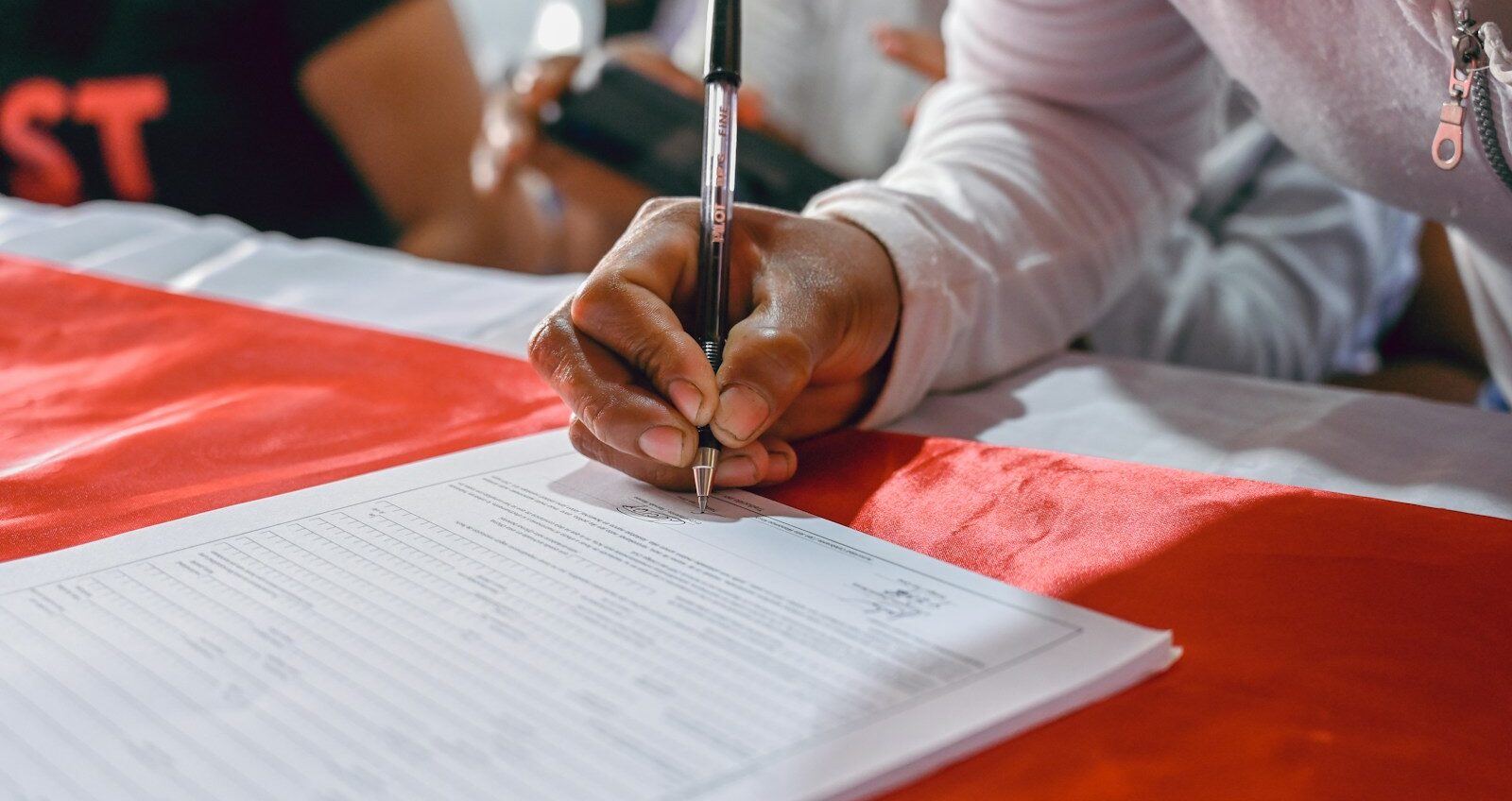We can never know how a new year will pan out.
In 2023, we’ve flirted on the edges of a recession, witnessed an explosion in AI advancement and rhetoric, seen toxic leaders and cultures outed on an almost weekly basis, and observed an influx of return-to-office mandates. Did we see all of this coming?
At the beginning of the year, we asked our top HRZone writers to make a prediction on the world of work for the year ahead. As 2023 draws to a close, we’ve asked these nine people and culture experts to assess the extent to which their prediction ‘came true’.
Here’s how our HR future gazers rated their forecasting skills…
Prediction: 2023 will be the year of recalibration
Perry Timms, Chief Energy Officer, People & Transformational HR Ltd
Well, there was recalibration alright: in favour of leaders appeasing their balance sheets/shareholders. People lost out – operating model recalibration resulted in harsh, sweeping cuts and people found themselves out of a job.
Back-to-the-office mandates were a recalibration of expensive corporate real estate utilisation and cut choice-based approaches of remote/hybrid.
Whilst many wanted to recalibrate retention policies for high-demand skills (and leaders still bemoan the paucity of what they want) this put HR in a tougher position balancing flexibility and inclusion with performance and profit.
Not the recalibration I’d hoped for. Out of 10, I’d give myself a 4.
Prediction: HR will need to be supportive when it comes to the knock-on effects of world conflict
Kate Palmer FCIPD, HR Advice and Consultancy Director at Peninsula UK
Unfortunately, this year has proven to be even more difficult than initially anticipated, therefore this advice remains as important as ever.
Employee wellbeing is likely to have taken quite a hit this year, and as we move into 2024 employers should continue their efforts to provide supportive HR practices.
With interest rates remaining high as well as mortgage and renting costs, financial wellbeing should be included as part of any wellbeing offering.
Providing access to financial planning services and advice, via an EAP provider or by signposting external organisations, will be especially important to help employees manage during these difficult times.
The importance of cultural intelligence has never been greater in the workplace.
Prediction: More ingenuity will be required as the risk to employee wellbeing will be higher than ever
Emma Parry, Professor of HRM and Head of the Changing World of Work Group, Cranfield School of Management
There is no doubt that, unfortunately, this prediction has come to fruition. We have seen ongoing challenges throughout 2023 with employee wellbeing and mental health. The proportion of working-age people who are economically inactive or on long-term sick leave continues to increase, as does the proportion of workers reporting burnout, mental ill health or work-related stress.
We might have avoided a recession, but the continued uncertainty and high cost of living is taking its toll. Action by employers remains essential. This needs to move beyond gimmicky solutions such as yoga and mindfulness sessions and focus instead on high-quality education, communication and practical and social support as well as addressing the drivers of work-related stress such as workload.
Prediction: Cultural intelligence (CQ) will enable interactions not previously occurring organically to further organisational belonging
Thom Dennis, CEO of Serenity in Leadership
Given the polarisation in our society and continued struggles to accept others’ ideas, values and beliefs I am sorry to say it may feel like we are not further forward. But this means that the importance of cultural intelligence has never been greater in the workplace.
We must strive for acceptance, belonging, harmony and unity, and find commonalities rather than differences. The benefits to a business in having employees with a high CQ include more successful interactions with people from different backgrounds, good handling of conflict and challenges, solid collaboration, and stronger, more authentic relationships. We must continue to strive for better.
We need to continue to work together to create a sense of team in this hybrid world.
Prediction: Organisations will prioritise and implement initiatives to improve employee financial wellbeing
Liam D’ortenzio, Head of People & Culture, Employment Hero
Last year we suggested that we will see more organisations prioritise and implement financial-based initiatives to help employees during the cost-of-living crisis.
In the main, this has proved to be the case. Most businesses have sought to help employees the best they can with the resources they have, from more at-home working to save money on commuting to providing more employee benefits, including in-store discounts and additional holidays, for example.
Sticky benefits such as these have helped to improve employee loyalty and retention too. We can certainly expect to see this continue in 2024.
Prediction: Female health concerns will be an important role in 2023
Francesca Steyn, Director of Fertility Services, Peppy
We did see an increase in tailored benefits offerings for women’s health. Awareness around areas such as menopause and fertility health has increased massively thanks to some very impactful TV shows and media campaigns.
Fertility benefits will be high on everyone’s agenda in 2024, especially with the proposed fertility treatment (employee rights) bill and the change in the law offering equal access to LGBTQ+ people wishing to undergo fertility treatment.
With pressures on NHS services as they are, it’s so important HR leaders in 2024 continue to promote and advocate for more awareness around fertility health. It is becoming increasingly difficult to access treatments, and employers can have a massive positive impact on this.
Wellbeing is no longer preserved for the progressive employer, it’s become part of a successful and well-functioning organisation.
Prediction: DEIB work will have a more profound impact on both employees and employers
Diane Lightfoot, CEO of Business Disability Forum
DEIB has undoubtedly gone up the agenda and grown in awareness and focus. When it comes to different ways of working, businesses across all sectors are still grappling with getting the balance right on hybrid working.
While some businesses have relinquished all their office space, others are mandating a full-time return. Communication is key.
Our Great Big Workplace Adjustments Survey 2023 found that many disabled employees are worried that they will be “forced” to return to the workplace and that change will happen without consideration of their needs.
Employers need to communicate sensitively, remembering that the right to request flexible working is different to home working as a reasonable adjustment. We need to continue to work together to create a sense of team in this hybrid world.
Prediction: The Employee Value Proposition (EVP) will be designed almost entirely around wellbeing
Gethin Nadin, Award-winning Psychologist and Chief Innovation Officer, Benefex
In 2023 I predicted that the EVP would be re-designed almost entirely around wellbeing. While still a transition that’s happening for many employers, there has been a definitive shift towards wellbeing as part of the “deal” an employee gets from work.
In our global research at Benefex we tracked an organisation’s view of how important employee wellbeing was to them and their strategies and since 2021 this has increased by 10%, sitting at 77% in 2023.
We also tracked how employees viewed wellbeing. In 2022 92% said a commitment to employee wellbeing was a number one priority when choosing a new role. In 2023, this figure reached a massive 97%.
Societal changes will continue to influence the decisions employers make. Organisations will continue to respond to global events by providing additional support to their people where necessary to protect their wellbeing. Wellbeing is no longer preserved for the progressive employer, it’s become part of a successful and well-functioning organisation and a compelling and attractive EVP.
Prediction: Business-led HR will become even more important in 2023
Deborah Wilkes FCIPD, MD of enable-hr International
Business partnering is even stronger as we come to the close of 2023. There’s been much debate about HR structures, with general opinion landing on ‘Ulrich+’ – a model where strategic business partnering and agility become even more important.
As organisations evolve their business partnering model, two questions emerge for 2024:
- What does ‘strategic business partnering’ really mean? Key themes include HR looking through a business lens, and raising the level of HR’s conversations.
- How can we build strong partnerships with client groups and at the same time operate as one HR team? Cohesion, unity and trust within HR have never been more important.
Onto next year…
What’s on the cards for 2024? We’ll be seeking our fresh predictions from our people and culture experts in the new year.
Interested in this topic? Read How to ensure your 2024 HR priorities are business-led







